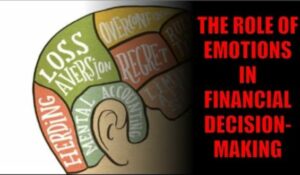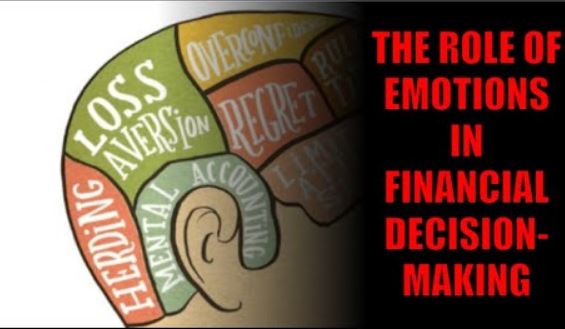When it comes to making financial decisions, it’s easy to assume that rationality and logic should play the most significant roles. However, emotions also heavily influence our financial choices. Understanding the role of emotions in financial decision-making is crucial for managing our money effectively. Here are some key points to consider:
1. Fear and Anxiety: Emotions like fear and anxiety can impact our financial decisions, often leading to irrational behavior. During times of market volatility or economic uncertainty, fear can push us to make impulsive decisions like selling investments at a loss or avoiding the stock market altogether. It’s important to recognize and manage these emotions to avoid making hasty and detrimental choices.
2. Greed and Overconfidence: On the flip side, emotions such as greed and overconfidence can also lead to poor financial decisions. When experiencing a market boom or success with investments, we may be tempted to take on more risk or make speculative investments based on overconfidence. This behavior can lead to excessive losses or unrealistic expectations, ultimately harming our long-term financial goals.
3. Loss Aversion: Loss aversion is the tendency to feel the pain of losses more acutely than the pleasure of gains. This emotional bias can cause us to hold onto losing investments for too long, hoping for a turnaround, or avoiding necessary portfolio adjustments. Being aware of loss aversion and considering it in our decision-making process can help prevent unnecessary financial losses.
4. Anchoring: Anchoring is a cognitive bias where we rely heavily on the first piece of information that we receive when making a decision. This can influence financial decisions, such as purchasing a particular stock based on its past performance or anchoring to a specific price when negotiating a purchase. It’s important to challenge and question these anchors to make more informed and objective financial choices.
5. Comfort and Familiarity: Emotions like comfort and familiarity can lead to financial decisions based on personal biases rather than thoughtful analysis. For example, we may stick with the same bank or financial advisor simply because we feel comfortable or have a personal connection, even if there are better options available elsewhere. It’s important to consider the rational aspects of a decision and not be solely swayed by emotional attachments.
6. Long-Term Goals versus Short-Term Gratification: Emotions can also impact our ability to prioritize long-term financial goals over short-term gratification. Instant gratification and the desire for immediate pleasure can lead to overspending, neglecting savings, or making impulsive purchases that hinder long-term financial stability. Cultivating strong self-control and aligning our actions with long-term goals can counteract these emotional temptations.
Understanding the role of emotions in financial decision-making allows us to make more informed choices. While emotions are natural and hard to eliminate entirely, we can mitigate their negative impact by being aware of our biases, seeking diverse perspectives, and developing disciplined financial habits. Striking a balance between rationality and emotional understanding is crucial for achieving financial well-being.

